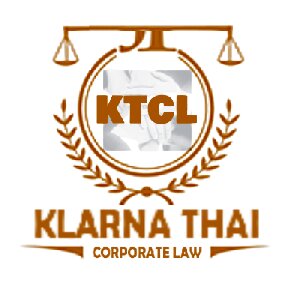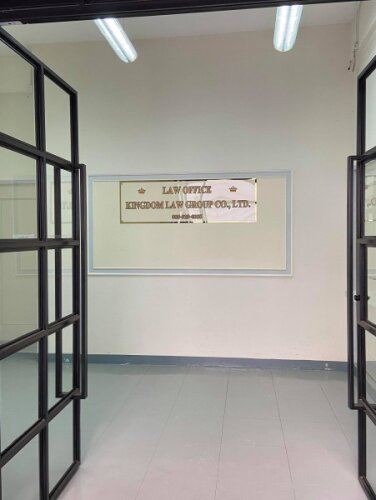Best Oil, Gas & Energy Lawyers in Watthana
Share your needs with us, get contacted by law firms.
Free. Takes 2 min.
List of the best lawyers in Watthana, Thailand
About Oil, Gas & Energy Law in Watthana, Thailand
The oil, gas, and energy sector in Watthana, a vibrant district of Bangkok, plays a pivotal role in both the local economy and the wider national landscape. The area is home to several key players in the energy industry, including multinational corporations, regional distributors, and service providers. Thai oil, gas, and energy laws form the backbone of regulatory oversight for these companies, ensuring compliance, safety, and sustainable development. This field encompasses a wide range of activities, from exploration and extraction to sales and distribution, all governed by a robust legal framework designed to balance economic growth and environmental protection.
Why You May Need a Lawyer
There are numerous situations in which individuals or businesses involved in oil, gas, and energy operations in Watthana may require expert legal assistance. Common reasons include:
- Navigating the process for acquiring permits or licenses for exploration or production
- Dealing with disputes over land use, ownership, or compensation with private parties or governmental authorities
- Ensuring compliance with relevant safety and environmental regulations unique to Thailand
- Drafting, reviewing, and negotiating contracts with suppliers, contractors, or joint venture partners
- Responding to investigations or enforcement actions by regulatory bodies
- Managing issues related to environmental impact assessments and community consultations
- Facilitating foreign investment, mergers, or acquisitions in the energy sector
Local Laws Overview
Oil, gas, and energy activities in Watthana and across Thailand are primarily regulated by several key laws and regulations, including the Petroleum Act, the Energy Industry Act, and environmental protection laws. These regulations govern the granting of exploration and production licenses, royalties, land use, environmental impact assessments, and the obligations of operators. There are also local municipal regulations in Watthana that can affect construction, operations, and transport of hazardous materials. Compliance with these legal frameworks is mandatory and closely monitored by authorities such as the Department of Mineral Fuels, the Energy Regulatory Commission, and the Ministry of Natural Resources and Environment.
Frequently Asked Questions
What are the main government bodies overseeing oil, gas, and energy in Watthana?
The Department of Mineral Fuels, the Energy Regulatory Commission, and the Ministry of Natural Resources and Environment are the primary regulators. Local municipal authorities also play a role in enforcing certain regulations and permits.
Do foreign investors face restrictions in the Thai energy sector?
Yes, there are restrictions on foreign ownership in certain sectors, particularly in primary oil and gas activities. However, foreign investors may participate through joint ventures or obtain specific licenses.
How do I obtain a license for oil or gas exploration in Watthana?
You must apply through the Department of Mineral Fuels and comply with specific criteria, including technical capability, financial strength, and environmental considerations.
What environmental regulations impact energy projects?
Thailand requires environmental impact assessments for most energy projects. Strict standards are enforced for emissions, waste disposal, and operational safety to protect local communities and ecosystems.
What are the penalties for violating oil, gas, or energy regulations?
Penalties range from fines to revocation of licenses. In some cases, criminal charges may be brought against individuals or companies responsible for serious breaches.
What is involved in drafting an oil and gas contract in Thailand?
Contracts must address exploration rights, production sharing, royalties, dispute resolution, and compliance with both Thai and local Watthana laws. Legal review is essential to ensure enforceability.
Are there local content or labor requirements?
Yes, certain oil, gas, and energy projects may be subject to local content requirements, encouraging the hiring of Thai workers and the use of domestic services.
Can I challenge a government decision regarding my energy project?
Yes, there are administrative and judicial review options available to challenge agency decisions, permit refusals, or regulatory enforcement actions.
How do energy laws in Watthana differ from other parts of Thailand?
Most national laws apply equally; however, Watthana’s local regulations may impose additional requirements or review procedures, especially concerning construction and transportation.
What legal risks should I consider when investing in renewable energy?
These include regulatory changes, land access disputes, permit delays, and compliance with incentives or grid connection rules. A local lawyer can advise on minimizing risk.
Additional Resources
For those seeking legal information or support in oil, gas, and energy matters in Watthana, several resources are available:
- Department of Mineral Fuels: The main governmental authority for upstream oil and gas activities
- Energy Regulatory Commission: Handles power generation, transmission, and distribution regulations
- Ministry of Natural Resources and Environment: Enforces environmental laws and impact assessments
- Bangkok Metropolitan Administration: Oversees local municipal regulations in Watthana
- Federation of Thai Industries, Energy Group: Provides industry news and contacts
- Thai Lawyers Council: Offers legal professional directories and reference materials
Next Steps
If you need legal assistance regarding oil, gas, or energy matters in Watthana, start by identifying the specific issue you are facing, such as permits, contracts, or disputes. Gather relevant documents and details about your case. Contact a qualified lawyer with experience in energy law in Thailand-preferably one familiar with both national and local Watthana regulations. Schedule a consultation to discuss your situation, legal options, and a strategy moving forward. Staying proactive and well-informed is the best way to protect your rights and ensure compliance in this highly regulated sector.
Lawzana helps you find the best lawyers and law firms in Watthana through a curated and pre-screened list of qualified legal professionals. Our platform offers rankings and detailed profiles of attorneys and law firms, allowing you to compare based on practice areas, including Oil, Gas & Energy, experience, and client feedback.
Each profile includes a description of the firm's areas of practice, client reviews, team members and partners, year of establishment, spoken languages, office locations, contact information, social media presence, and any published articles or resources. Most firms on our platform speak English and are experienced in both local and international legal matters.
Get a quote from top-rated law firms in Watthana, Thailand — quickly, securely, and without unnecessary hassle.
Disclaimer:
The information provided on this page is for general informational purposes only and does not constitute legal advice. While we strive to ensure the accuracy and relevance of the content, legal information may change over time, and interpretations of the law can vary. You should always consult with a qualified legal professional for advice specific to your situation.
We disclaim all liability for actions taken or not taken based on the content of this page. If you believe any information is incorrect or outdated, please contact us, and we will review and update it where appropriate.















